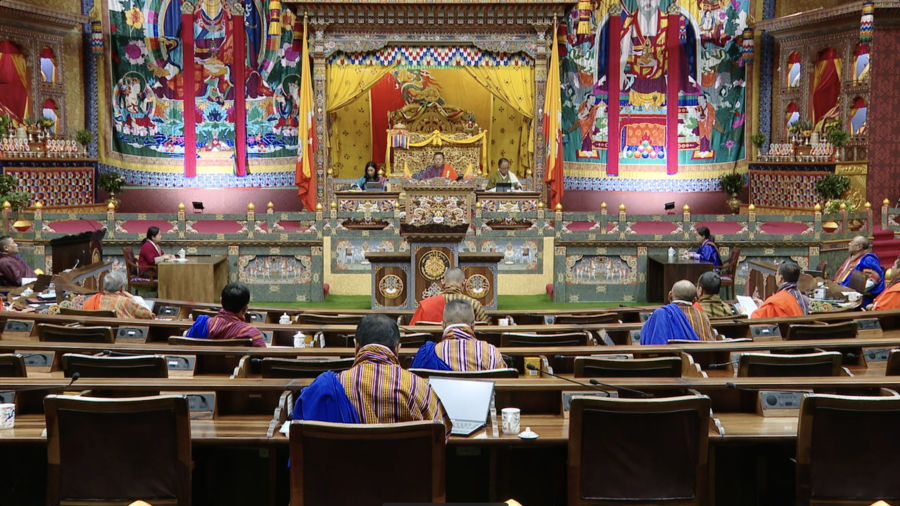
In a petition submitted to the National Assembly today, members of parliament called on the government to review the current number of storeys in a building and consider increasing it from three to five in all district Yenlag Throm. They said that the current three-storey limit is worsening housing shortages and stalling urban development. The MPs highlighted that many are being forced to live in temporary huts due to the lack of rental housing. They urged the Ministry of Infrastructure and Transport to allow construction of up to five-storey buildings where feasible.
The Bongo-Chapcha MP emphasised that Chhukha, home to major economic activities and a growing population, deserves planning standards that match its development potential.
“Residents say that there are potential in the Yenla Throms in Chhukha to extend building storeys from three to five. We can also see that when the district could build a larger Dzong, I think there is feasibility to add building storey. It’s the same with Gedu. The place has a plain landscape,” said Pempa, MP, Bongo_Chapchha, Chhukha.
He added that allowing taller buildings would promote balanced national development and address perceptions of regional inequality.
Other MPs supported the petition, sharing concerns that Bhutan’s continued horizontal urban extension is undermining sustainability and environmental conservation.
“According to our Constitution, Bhutan is mandated to maintain 60 per cent of our land under forest cover. However, the current three-storey limit is a horizontal growth or extension which is threatening and undermining this very commitment,” said Pema Drukpa, MP, Khamaed Lunana, Gasa.
The members also questioned the inconsistencies in rules and regulations regarding building construction.
“We want to question if the government takes into consideration the initial plans when they make new construction plans? Because once people start to construct according to the initial plan and the plans change, it becomes very inconvenient to progress,” said Tshewang Rinzin, MP, South Thimphu.
In response, the minister clarified that any change in building regulations must follow expert assessments, including topographic and population studies.
He shared that beginning June, a team of urban planners will begin touring districts to evaluate the feasibility of allowing taller buildings.
“Although towns and Yenla Throms were approved in all 20 districts during the second government, a Supreme Court ruling has put these plans on hold. We’ve been receiving requests from local governments regarding Yenla Throms, but the ruling requires the formation of a high-level committee comprising legal experts. That’s why we’ve recently written to the Attorney General seeking guidance on how to proceed,” said Chandra Bahadur Gurung, Minister, MoIT.
Meanwhile, the Speaker stressed the urgency to resolve inconsistencies and inadequacies in urban planning.
“Towns in all the districts are becoming very inconvenient. Town planning is inconsistent, and I think the ministry should assess which district needs priority quickly. If not, it might lead to more issues in the country,” said Lungten Dorji, Speaker, National Assembly.
The House referred the petition to the Environment and Climate Change Committee, which will present its findings in the upcoming winter session.
Namgay Dema
Edited by Sonam Pem









